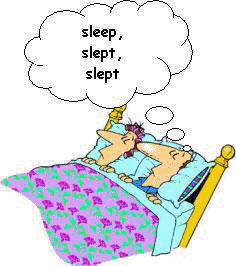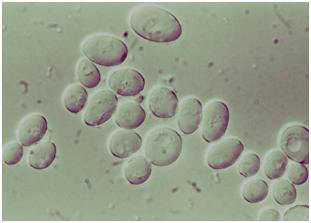L a G r a n E n c i c l o p e d i a I l u s t r a d a d e l P r o y e c t o S a l ó n H o g a r
![]()
Chapter 11: Love Train

Read the passage. Then answer questions about the passage below.
Proyecto Salón Hogar
|
When I was a little girl, I loved for my mom to tell me stories about herself. No matter how tired she was, she never adumbrated them. She would fill the tales with the minutest details, and they were always fascinating. Another thing she did was tell the stories with such grandiloquence! Then she would stop and say, “Now what do you think that word means?” I would try to piece together what was happening in the story and make my best guess. To this day, when I want to bug my friends, I use the huge words I first learned leaning on Mom's shoulder as she recounted a snippet of her life. My favorite story was the one about how my mom met my dad: “I was 17-years-old, but I already knew the kind of man I would marry. Take note: "He would not be too garrulous. I tell you, Rosa, it’s important for a man to take time to listen to what you have to say." And never impertinent. I’ll never forget when I was 16; a boy from my church named Joe Turner came and knocked on our door. He didn’t look my momma in the eye, and didn’t say, "Hello." He just leaned against the door jam and said, "Rosa here? My momma raised her brow and said, "She is, but not for boys such as yourself." “But I digress. I’m supposed to be telling you about the day I met your daddy, right?" “Okay, so I was riding the Amtrak train between Providence and Philadelphia during my freshman year at Brown, and the door at the end of my car rattled open." “He was tall and swarthy. He wore a thick ivory cable knit sweater with a gray wool scarf wrapped firmly around his neck. I couldn’t tell what his heritage was and that intrigued me. What was he -- Indian, Portuguese, Peruvian?” Mom would pause here and I would shout, “Cape Verdean!” She’d continue. “Well, if I had been shy, I might have just looked out the train window. But then where would I be now? You wouldn’t even be here! So I let my eyes lock with his as he
wobbled down the moving train." “He smiled a slight smile, not a
big one. His eyes raised just enough to let me know he had
spotted me too.” I always loved this line and would smile at the
image of my dad stumbling down the train and then noticing my
radiant mom.
So Rosa, once we spotted each other, your dad found infinite reasons to walk past me to go to the café car. I was sitting by myself along the aisle. So finally, I just slid over to the window, leaving the seat next to me empty." “Your dad came back with two cups of hot cocoa and sat down with a smile. And we had the most delightful conversation!" “I could tell right then that this was no ephemeral crush – this was the real deal. I was going to end up loving this man forever.” Here comes the part I loved best about the story. “We pull into the train station in Philadelphia, and it’s time for me to get off. He was heading on to Washington where he was going to school." “I prepared myself for some hackneyed expression as I got off the train. You know, Great meeting you,‟ or You’re the apple of my eye.‟" "I'm also worried he might try to sneak a smooch, which would have been a big turn off. We'd just met!" Instead, he took my hand gently and gave it a little squeeze. He said, “If it’s the thought that counts, consider yourself kissed.” Mama said she just about died when he said that! Then she said to herself, “That man will be my husband.” And so he is. |
Page 1
![]()
|
Questions
B. lengthened C. invented D. simplified E. understated
2) As used in the passage, what is the
meaning of grandiloquence? B. archaic speech
C. pithy expression D. pompous language E. foreign word or phrase
B. The passage has nothing to do with a song. C. It is where Rosa's mother meets her husband-to-be. D. The train only went a short distance but their love was forever. E. Rosa's mother could not
have possibly loved her father after such a short train ride.
4) Why might the author have chosen Rosa as the narrator even
though it is her mother who is telling the main story? B. to make the story seem more straightforward C. to make it clear that Rosa’s mother has passed away D. to make it clear that the story happened a long time ago E. so that the reader could
learn the story from Rosa's perspective
B. loquacious C. narrow-minded D. obsequious E. patronizing
B. A student gestures rudely to his teacher. C. A child rushes out the door, forgetting to say good-bye to his mom. D. A woman refuses to let her son play video games before school. E. A dog chases all the
cats in the neighborhood. |
Page 2
![]()
|
7) Which is the best antonym for digress? B. stray C. shorten D. remember
E. stay on course
B. a regret that she met her husband on a train C. the suggestion that Rosa might find her husband on a train D. a yearning to go back to that time and place E. the idea that education should come before
marriage
__ B. politeness __ C. originality __ D. respectfulness
__ E. heroism
You wouldn’t even be here! But I let my eyes lock with his as
he wobbled down the moving train." B. that it is best to be outspoken in all circumstances C. that as soon as they locked eyes they fell in love D. that a slight change in circumstances could have greatly altered her life E. that the story took place before technology
allowed trains to offered smooth ride
11) As used in this passage, what is the meaning of ephemeral?
B. permanent C. ridiculous D. serious E. young 12) Which is the best antonym for hackneyed? B. humorous C. original D. over-used E. turbulent What is a verb?
|
Page 3
![]()
|
The verb is perhaps the most important part of a
sentence. The verb tells you something about the subject.
It can express an action, an event, or a state of being. The
verb is also the critical element of the predicate. Many verbs communicate the idea of performing an
action or of doing something. Some verbs, however, do not express an action. They communicate the
idea of existence or state of being.
A verb always has a subject. In simple terms, we can
say that verbs are words that tell us what a subject is or does;
they describe action or state of being.
A. Write the verb in each group of words. 2. yellow, call, September _______________________ 3. sing, teacher, uniforms _______________________ 4. school books, play, cauldron
_______________________
|
||||||||||||||||||||||||||||||||||||||||||||||||||||||||||||||||||||||||||||||||||||||||||||||||||||||||||||||||||||||||||||||||||||||||||
|
Page 4
Page 5
|
||||||||||||||||||||||||||||||||||||||||||||||||||||||||||||||||||||||||||||||||||||||||||||||||||||||||||||||||||||||||||||||||||||||||||
Cells
|
||||||||||||||||||||||||||||||||||||||||||||||||||||||||||||||||||||||||||||||||||||||||||||||||||||||||||||||||||||||||||||||||||||||||||
|
Page 6
|
||||||||||||||||||||||||||||||||||||||||||||||||||||||||||||||||||||||||||||||||||||||||||||||||||||||||||||||||||||||||||||||||||||||||||
|
|
Questions
B. Each type has a different job. C. Each type is a different size. D. All of the above are correct. E. Both A and C are
correct. 2) Neurons are important because they… B. tell your body when to move. C. carry oxygen through your body. D. help your body fight sickness. E. Both A and B are correct. F. Both A and C are
correct. 3) What kind of cells keep dirt off your
body’s organs? B. Skin cells C. Epithelial cells D. Red blood cells E. Both B and C are correct.
4) What do liver cells do? B. They pad the organs in your body. C. They tell your heart when to beat. D. They fight viruses in your body. E. They keep your body
warm. 5) What is an example of smooth muscle? B. The muscles that digest food C. Your arm muscles D. Both A and B E. None of the above |
|||||||||||||||||||||||||||||||||||||||||||||||||||||||||||||||||||||||||||||||||||||||||||||||||||||||||||||||||||||||||||||||||||||||||
| Page 7
|
||||||||||||||||||||||||||||||||||||||||||||||||||||||||||||||||||||||||||||||||||||||||||||||||||||||||||||||||||||||||||||||||||||||||||
|
|
Vocabulary
B. neurons. C. messages. D. Both A and C are correct. E. All of the above. 2) If you get rid of something, you… B. destroy it. C. burn it. D. crush it. E. All of the above. 3) If you have a fever, your body is… B. cool. C. quiet. D. in pain. E. Both B and C are
correct. 4) What is a bodily organ? B. A body part that has a task C. Any group of cells D. Both A and B are correct. E. None of the above. 5) What is the best synonym for store? B. Keep C. Burn D. Move E. Check |
|||||||||||||||||||||||||||||||||||||||||||||||||||||||||||||||||||||||||||||||||||||||||||||||||||||||||||||||||||||||||||||||||||||||||
| Page 8
|
||||||||||||||||||||||||||||||||||||||||||||||||||||||||||||||||||||||||||||||||||||||||||||||||||||||||||||||||||||||||||||||||||||||||||
|
|
Sentence Analogies Directions: Choose the sentence that
makes sense. For each question, the analogy type is
written beside the question number. A. Something that is huge is very big. B. Something that is good is very bad. C. Something that is new is very sweet. B and C don’t make sense! But hey! A makes sense!
1) function B. A car is used to talk. C. A fork is used to eat.
2) characteristic B. A characteristic of the sun is to be hot. C. A characteristic of an apple is to be blue.
B. A wheel is part of a hat. C. A finger is part of a hand.
B. By definition, an baby duck is a man. C. By definition, an baby
cow is a chicken. 5) type/kind B. A dog is a type of insect. C. A truck is a type of
airplane. |
|||||||||||||||||||||||||||||||||||||||||||||||||||||||||||||||||||||||||||||||||||||||||||||||||||||||||||||||||||||||||||||||||||||||||
| Page 9
|
||||||||||||||||||||||||||||||||||||||||||||||||||||||||||||||||||||||||||||||||||||||||||||||||||||||||||||||||||||||||||||||||||||||||||
|
6) luck B. Something that is old lacks emotion. C. Something that is good
lacks family. 7) other B. Cows live in the city. C. Bears live in a hotel. 8) function B. A knife is used to see. C. A shovel is used to dig. 9) part to whole B. A wheel is part of a car. C. A dog is part of a leg. 10) degree B. Something that is right is very wrong. C. Something that is great is very good.
|
||||||||||||||||||||||||||||||||||||||||||||||||||||||||||||||||||||||||||||||||||||||||||||||||||||||||||||||||||||||||||||||||||||||||||
|
Page 10
|
||||||||||||||||||||||||||||||||||||||||||||||||||||||||||||||||||||||||||||||||||||||||||||||||||||||||||||||||||||||||||||||||||||||||||





